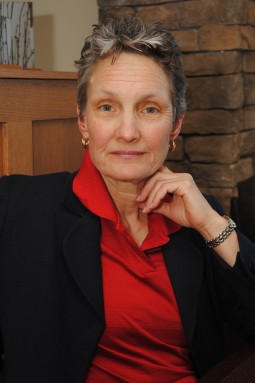Last Monday, the day before the Nashville Statement was released, I listened to a sermon on the cross. The country was still dazed by Charlottesville and just beginning to face the destruction of Hurricane Harvey when the preacher reminded his audience that the cross was a stumbling block, foolishness, in fact, a scandal. Long before the cross became a symbol of salvation and hope, it was a barbaric, dehumanizing form of torture and death far beneath the dignity of any Roman citizen. God as man, surrounded for the most part by hate filled mockers, endured a humiliating death to secure both our salvation and his own future glory. This central tenet of Christianity is and should be unsettling. Its serious contemplation should shake us and move us. The sermon ended with a heartfelt plea that we listeners not add to the foolishness of the cross.
The implication, of course, was that when we Christians act like fools, instead of being fools for Christ, we add unnecessary barriers to the Gospel. As Jesus’ disciples said, “This is a hard word.” I thought about that hard word, racial relations, hurricanes and monsoons, wars and rumors of wars, and a significant portion of creation groaning, as I read the Nashville Statement for the first time last Wednesday. I read it without much emotion and made brief notes on Articles 2, 10, 11 and 13. I mentally agreed with most of it, then I allowed myself to emote, put my head in my hands and asked, “Why now? How is this even remotely helpful?”
Since Wednesday my thoughts and evaluations have been all over the map. I have read articles by some of those who signed the statement; counter statements, serious and sarcastic; even The Babylon Bee’s unusually partisan take. I freely admit that my emotional sympathies rest with the LBGTQ+ communities and pray that the statement is not a foolish barrier to the cross. I must also affirm that my theological convictions are far more (as in almost entirely) in line with the Nashville Statement than with, say, the Denver Statement. I am in whole-minded, if not hearted, agreement with the Nashville preamble.
Why Now?
I am ready to reconsider “Why now?” However long ago the gathering in Nashville may have been planned, certainly the decision to release the statement last Tuesday was made with awareness of what was going on in Houston (and had gone on in Charlottesville). So was it proof of the insensitivity of the “Christian Right”? However I may feel, I do not think so. I will take Al Mohler at his word; the signers of the Nashville Statement view it as “an expression of love for same-sex attracted people.” “All times” are good times “to speak the truth in love” (see Article 11, and, yes, we will get back to all times and love). Now, actually last Tuesday, is perhaps an opportune time to make an unpopular statement. As my son suggested, after its initial vitriol, the media has moved back to Harvey and the very real threats posed by Hurricane Irma and North Korea. But, as long as the United States protects religious freedom, the Nashville Statement establishes precedent for its signatories to refuse to perform same-sex marriages. Conservative Christian theological distinctives are fast being labeled as hate crimes, so this is no small matter.
Weighing the helpfulness of the statement brings me back to “all times” and “love.” But first, interestingly and I suspect providentially, an old friend just emailed me an essay by J. I. Packer. Packer, who signed the Nashville Statement, criticizes the practice of watering down the Gospel in the name of “‘helpfulness.’” Without turning this into a full scale rabbit trail, I want to say that Packer’s comments gave me pause. We sanitize or diminish the scandal of the cross to our eternal peril. My question last Wednesday may have had more to do with short-term comfort than long-term help. Those who signed Article 11 “AFFIRM [their] duty to speak the truth in love at all times.” My own problem with what exactly is meant by “all times” can be set aside by focusing on love. I do think that telling what the Bible indicates is true is loving. But love like faith is more than words. Love rooted in faith knows when not to speak, but to walk alongside hurting people.
Demonstrating Love
My hope is that the Nashville signatories (and all Christians) will take the hard, narrow road of demonstrating their love for the LBGTQ+ communities in acts of self-sacrifice and service. My prayer is that those of us in full or close agreement with the statement will take seriously our individual responsibilities to heed its call to sexual purity. My deep desire is to cause no one to stumble on the way to the cross of Christ. Our foolishness is often toxic, but the foolishness of the cross is the only hope for the hurting world. However we feel about the Nashville Statement, let us commit to acting and speaking in a way that brings honor to the One who was hated, tortured and executed to show us God’s all-surpassing love.

Elodie Emig
Elodie Emig, MA is an instructor of Greek at Denver Seminary. She joined the adjunct faculty in 1988 and teaches Greek. She became a full-time instructor of Greek in 2004. In addition to her duties at the Seminary, she is also on the adjunct pastoral staff of New Song Church and Ministries and the board of Where Grace Abounds.
Ms. Emig holds an MA in New Testament from Denver Seminary. Since her student days, Ms. Emig has served the New Testament department of Denver Seminary as a grader and guest lecturer. She has also volunteered her exegetical expertise to Where Grace Abounds. She has written numerous articles on the Bible and homosexuality.

